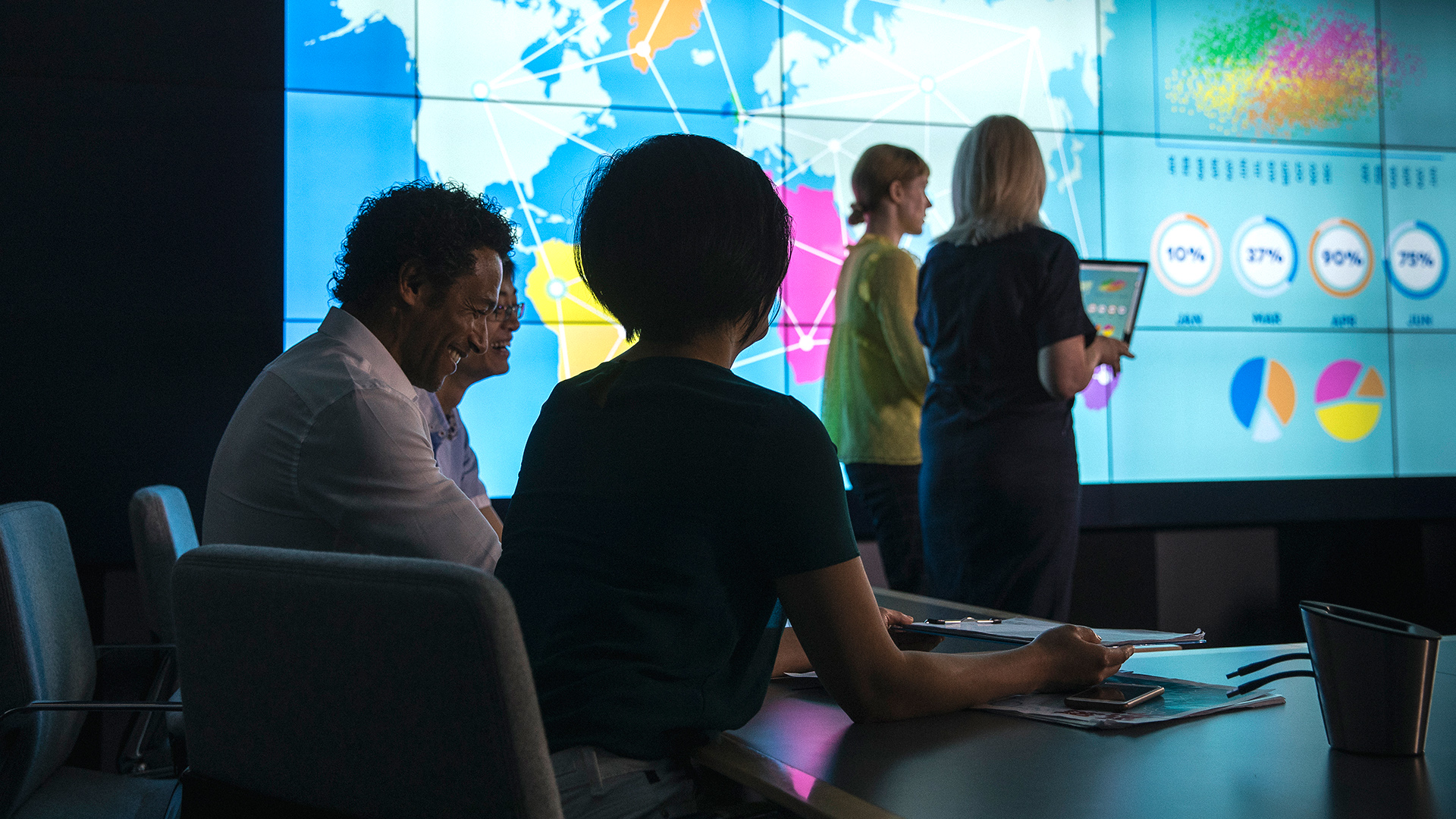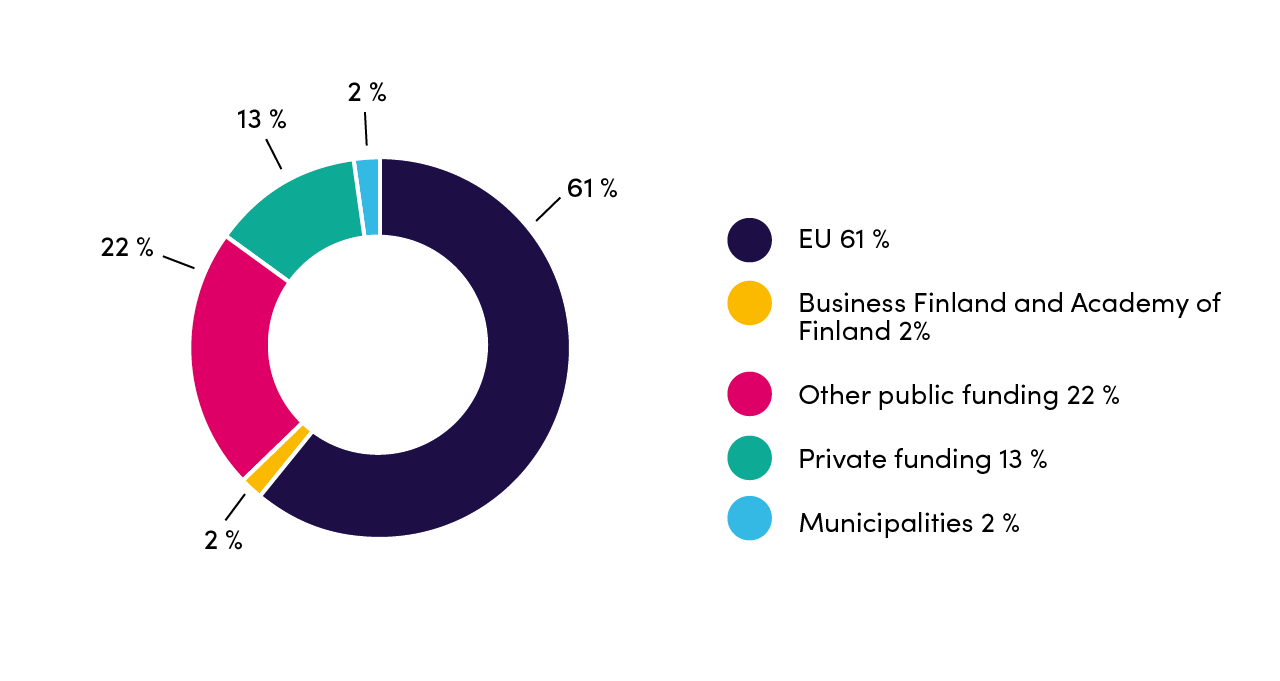Jamk Engages in Research and Development in 2020
Research, development and innovation activities at Jamk University of Applied Sciences have grown continuously since 2015, and their volume in 2020 was higher than ever before.

The total volume of RDI increased slightly to EUR 11.5 million. For this, external funding amounting to EUR 8.3 million was obtained, which is also the highest amount on record.
The aims of the RDI activities included both renewing competence within Jamk and improving competitiveness in the world of work and business life. RDI activities for working life concentrated on three focus areas defined in the strategy: bioeconomy, multidisciplinary rehabilitation and applied cybersecurity, and three emerging fields: automation and robotics, tourism and innovative learning.
The European Union's Structural Funds continued to be the main source of funding. The funding base was expanded by tapping new funding programmes. In addition, the regional focus was more actively directed towards national and international consortia.

External funding of the RDI projects.
Significant resources were allocated to the preparation of projects relevant to the focus areas. Additionally, efforts were made to promote research in the focus areas and to invest in learning and research environments.
Research was profiled more strongly and inputs in it were increased further, and researchers were recruited especially for the focus areas and emerging fields. New research teams were launched, and cooperation between researchers was stepped up. Development cooperation projects related to education were heavily emphasised in Jamk's international RDI activities. In particular, new projects were launched through HEI ICI funding (Higher Education Institutions Institutional Cooperation Instrument). Jamk was a significant national actor in development cooperation funded through the Ministry for Foreign Affairs.
Efforts to develop open science and research practices continued, and good scientific practices and operating models were promoted. Staff training was organised on key topics of open science and research. Among other things, instructions and tools related to research permits, ethical reviews and the processing and storage of data sets were developed. Jamk communicated actively about new and updated practices and guidelines.
RDI operating methods were developed further. The conclusion phase of RDI projects was improved by updating internal practices and paying particular attention to disseminating findings and impacts. Procedures for RDI communications and interaction with partners and beneficiaries were clarified. These measures aimed at gaining more visibility for RDI activities’ impacts.
Students’ opportunities to participate in RDI were improved by developing the Future Factory activities. As Jamk transitioned to distance work, new channels were provided for students for getting involved in RDI projects that were already being planned and implemented. Students’ role in RDI projects was clarified.
EduFutura cooperation with the University of Jyväskylä and Gradia continued. Jamk participated actively in the development of an innovation ecosystem by the City of Jyväskylä and the Ministry of Economic Affairs and Employment in the sports, health and wellness sector as well as in innovative industry. Dynamic RDI activities continued on Jyväskylä’s urban development platforms.
The possibilities of cooperation between Jamk and LIKES Research Centre for Physical Activity and Health were examined, and a letter of intent concerning the integration was drawn up between the organisations.
In late 2020, Jamk's Board of Directors made a significant decision on establishing an Institute of Rehabilitation in January 2021. The Institute is an education, research and development centre for multidisciplinary rehabilitation that responds to society's changing needs by renewing rehabilitation and producing rehabilitation competence through education, continuous learning, research and development.